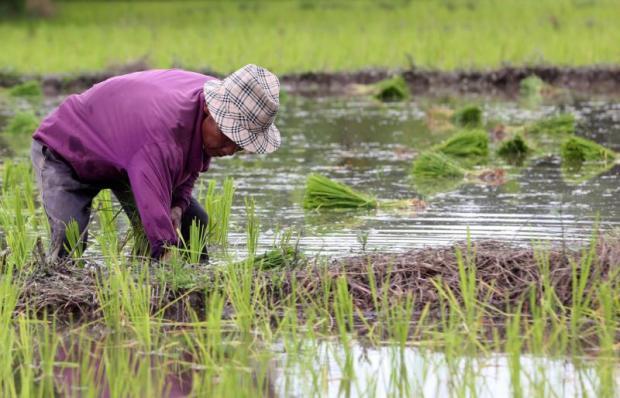Thailand: Six strategies targeted for development
Thailand’s national strategy is centred on six key areas — farming, services, tourism, entrepreneurship, logistics and digital — to help raise the country’s competitiveness and make it a developed nation in 20 years.
Sathit Limpongphan, chairman of a committee tasked with developing a national strategy to strengthen the country’s competitiveness, said six strategies that have already been approved by the committee will be implemented to that end.
“Foremost is developing Thailand into a farming superpower, with a special focus on 25 million farmers that account for over 30% of the population. Farmers should have high income and their work should be sustainable,” said Mr Sathit.
“Thailand has great potential to become a major player in producing and exporting tropical farm products to supply the world market. It also boasts biodiversity. The focus should be on adding value and producing high-quality farm products.”
He said technology and innovation will be used to drive farm sector development, raising productivity both in terms of volume and quality for a variety of products.
The strategy on farm development is to emphasise chemical-free farm products and food safety, said Mr Sathit.
He said advanced industries and service industry development, particularly for digital technology, biotechnology and physical technology, require a special focus.
Thailand aims to develop into a world-class tourism destination with a special focus on food, film, fashion, festivals, faith and fighting.
Small and medium-sized enterprises should also be developed into large companies to drive the country’s economic growth, while the government needs to invest heavily in logistics systems, particularly to build infrastructure linking neighbouring countries, East Asia and South Asia.
Special economic zones in other areas should be developed in the same way as the Eastern Economic Corridor, while digital infrastructure needs state investment to upgrade the country’s competitiveness, he said.
Mr Sathit said the committee is scheduled to come up with master plans for those strategies before April, which will then be submitted to the cabinet for approval.
In a related development, Deputy Prime Minister Somkid Jatusripitak yesterday called a meeting of related state agencies such as TOT Plc, CAT Telecom Plc, the Digital Economy and Society (DE) Ministry, Finance Ministry, Science and Technology Ministry and the Board of Investment to speed up the working processes.
He also ordered TOT to accelerate the development of the nationwide internet broadband system.
Mr Somkid has also tasked related agencies with linking internet broadband to villages, schools and public health centres in a bid to lift the quality of life and education in remote areas.
The Commerce Ministry was also instructed to assist community shops to make use of internet broadband to sell their products online, while the DE Ministry was ordered to speed up the 5-billion-baht submarine cable scheme.
“This year is the final year of this government,” he said. “If the election takes place late this year, that means the government only has three quarters of a year left in office. Thus, all development plans need to be accelerated.”
The World Economic Forum’s global competitiveness report for 2017-18 released last September ranked Thailand 32nd out of 137 countries in competitiveness, up two notches, thanks to improvements in infrastructure, macroeconomic environment, health and education development, market efficiency, financial market development and technological readiness.
Thailand ranked third among nine Asean countries after Singapore (third) and Malaysia (23rd). Indonesia ranked 36th, Brunei 46th, Vietnam 55th, the Philippines 56th, Cambodia 94th and Laos 98th.
Source: https://www.bangkokpost.com/business/news/1390430/six-strategies-targeted-for-development


 English
English




